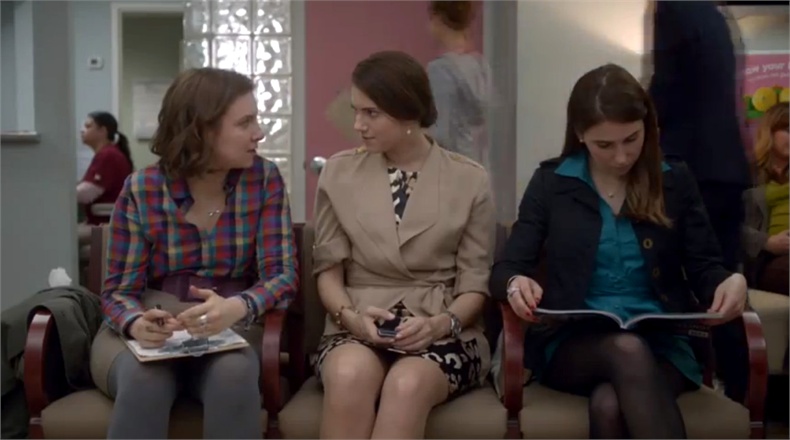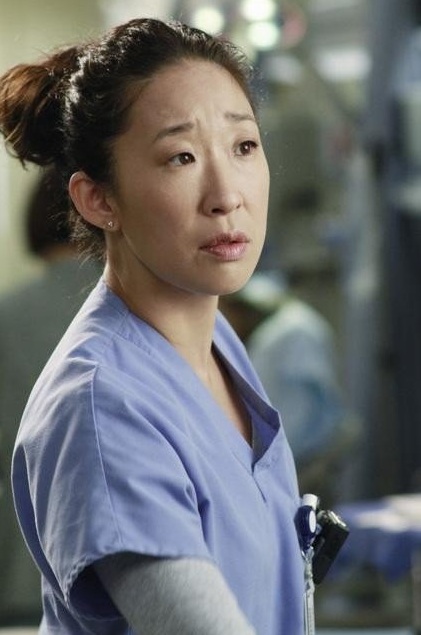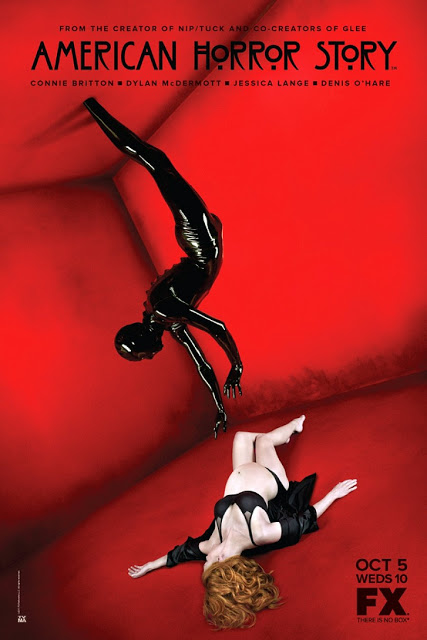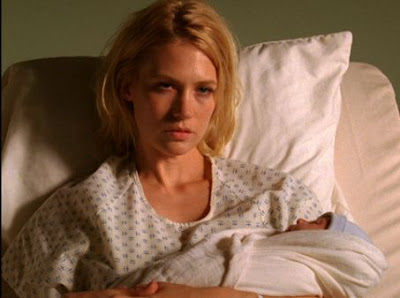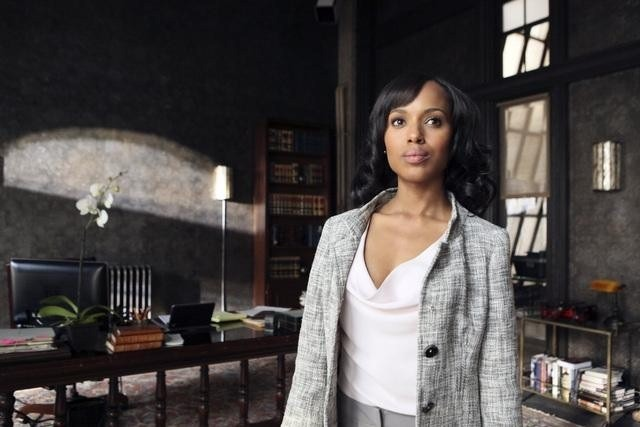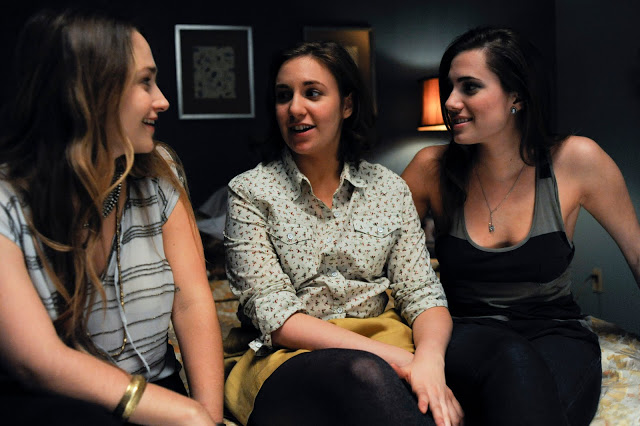 |
| (L-R): Hanna (Lena Dunham), Allison Williams (Marnie), Zosia Mamet (Shoshanna) in Girls |
Category: On Television
Reproduction & Abortion Week: ‘Grey’s Anatomy’ Advocates Abortion and Reproductive Rights
Abortion is healthcare — a routine, normal and legal medical procedure. Yet most films and TV don’t ever broach the subject. Their characters don’t get abortions, people don’t talk about abortion. That’s why I’m thrilled about Cristina Yang’s abortion storyline on Grey’s Anatomy.
Owen eventually supports Cristina and accompanies her to the abortion, holding her hand, both physically and emotionally. Although I’ve heard (I’m a bit behind in watching), that he later accuses her of killing their baby. Horrible. As Feministing’s Maya talked about Hollywood’s “rules for abortion,” she asserted that Cristina would probably have to pay for her decision down the road. Sadly, it seems like that might be true.
As RH Reality Check’s Martha Kempner points out, there weren’t any “extenuating circumstances” involving Cristina’s pregnancy. She wasn’t in medical danger; the fetus wasn’t in any danger. Cristina chose abortion because she didn’t want to be pregnant.
Reproduction & Abortion Week: ‘American Horror Story’ Demonizes Abortion and Suffers from the Mystical Pregnancy Trope
American Horror Story co-creators Ryan Murphy and Brad Falchuk wanted to create a TV series that truly scared people. And they’ve definitely succeeded in their goal. But why the hell are they so afraid of abortion and women’s reproduction?
Reproduction & Abortion Week: Melodramatic Clichés and Missed Opportunities: Lori’s Pregnancy in ‘The Walking Dead’
 |
| The Walking Dead |
When Lori finds out that she’s pregnant, she doesn’t know whether the father is Rick or Shane. No judgment; it’s a crazy zombie world and she’s been getting along the best she can. She contemplates ending the pregnancy and procures some emergency contraceptive pills in the hopes that they’ll do the trick. (Of course, morning after pills are not abortion pills, and both Lori and the show’s producers are aware of this. Yet that doesn’t stop them from perpetuating harmful misconceptions about emergency birth control, as Megan Kearns astutely points out in her Bitch Flicks piece on The Walking Dead.) But no sooner does Lori down the pills than she abruptly changes her mind and vomits up the offending medication. Only then does she confess the truth of her pregnancy to her husband Rick, who unequivocally declares the child his own, and is angry at her for even considering an abortion.
Let’s be frank. Lori’s choice not to end her pregnancy is not intelligent. It doesn’t make rational sense within the context of the show. Moral and emotional factors aside, having the baby is the least reasonable choice Lori could make. Being in the late stages of pregnancy will drastically diminish her chances of surviving a zombie attack. And what happens after the baby comes? A wailing, helpless newborn infant could be a potentially deadly liability. Lori has ample reasons to put aside her feelings and do the logical thing, for the sake of her own survival.
Of course, these difficult choices are never based purely on reason. The problem in The Walking Dead is that Lori is a frustratingly underdeveloped character. So it’s never quite clear exactly what other factors are contributing to her decision. What are her values, her priorities? All we really know about Lori is that she constantly changes her mind for no apparent reason. For example, at the very start of season 2, she firmly tells Shane to stay away from her and her son Carl (pretty justifiably, since at the end of season 1, the man did attempt to rape her.) Shortly after that, she’s angry at the same man for wanting to leave the group. It’s fair to say that Lori’s behavior is wildly inconsistent. It’s difficult to glean a distinct set of character traits or values from her actions. So when she chooses to reject the morning after pills, it’s impossible to know exactly why. Beyond the generic assumptions that “life is precious” and “babies are good,” there is no sense that Lori’s choice arises inevitably out of who she is.
So rather than illuminating Lori’s character or highlighting the moral and ethical dilemma she faces, Lori’s decision exists mostly to heighten the dramatic tension of the story — that is, to heighten the tension among the men. The pregnancy of uncertain paternity is a well-worn trope of high melodrama and a staple of the soap opera. In The Walking Dead, it’s used to deepen and harden the conflict between Rick and Shane, which is the backbone of the second season. The pregnancy provides a further wedge between the men, strengthening Shane’s belief in his own claim on Lori. It also motivates Rick to seek long-term refuge at Hershel’s farm. So Lori’s ultimate decision is less about Lori and what she wants or needs or believes, and more about creating melodrama among the men.
At its core, the rivalry between Rick and Shane is a regressively sexist contest for alpha male status. In her piece on sexism in The Walking Dead, Megan Kearns outlines the outdated gender roles depicted on the show, including how the characters openly and fiercely reinforce the gender-based segregation of labor. Men do most of the dangerous, active tasks, while the women of the group do the domestic tasks.
Now it does make a certain amount sense that either Rick or Shane would lead the group, since they both have experience as lawmen. The skills of a sheriff’s deputy would definitely come in handy during a zombie encounter. But what qualifies them to make decisions about where the group will go next, and what it will do in the long term? Being former sheriff’s deputies doesn’t provide them any special insight into the nature of the post-apocalyptic world. Yet the show operates on the unquestioned assumption that the group needs an alpha male to lead it, and that man will be either Rick or Shane.
But the clash between Rick and Shane isn’t just a contest over who can keep the group safe. Shane asserts repeatedly that on a deeper level it’s a struggle for possession of Lori, Carl and the unborn child. Making the rivalry fundamentally about custody of Lori and the unborn baby cheapens the conflict. There is potential for a thought-provoking philosophical dispute over the need to sacrifice civilization in the name of survival. Is survival even worthwhile if civilization must be abandoned? While the characters pay a lot (a very lot) of lip service to these issues, the potentially fascinating debate takes a back seat to shallow machismo when the writers distill the conflict into two men fighting over a woman.
Essentially, Lori keeps her baby so that the men have more to fight over, and The Walking Dead misses a real opportunity to explore a rich, provocative theme. Even without addressing the morality of abortion, Lori’s predicament goes to the larger philosophical conflict that supposedly drives the whole season. Can people fighting for survival afford to have morals? How do people react when their right-to-life principles are tested? In the real world, it takes a lot less than a zombie apocalypse for a pregnant woman in crisis to realize that her ideals and her reality may not blend well. But here we have a whole other layer of considerations, none of which get discussed or explored at any length.
How much more powerful and dramatic would it have been if Lori really wanted to keep the baby, but ultimately had to decide that she couldn’t? Or perhaps the opposite – maybe she could have initially been determined to abort, but decided that it would be better to risk death than give up on her ideals. At the very least there could have been an interesting conversation or two about it.
Instead, the show backs away from real-world controversy and gives us a lot of soap-operatic, male-driven melodrama. And once again, a woman’s very intimate predicament simply serves as fodder to motivate and drive the male characters’ stories.
Rebecca Cohen is the creator of the webcomic “The Adventures of Gyno-Star,” the world’s first (and possibly only) explicitly feminist superhero comic.
Reproduction & Abortion Week: Mad Men and The War on Women, 1.0
It’s not easy being a lady in the working world today. We’re still fighting for equal pay for equal work, freedom from workplace harassment, and the right to decide what grows (or implants itself) in our uteruses. In all honestly, it’s not terribly different from the drama unfolding at Sterling-Cooper-Draper-Pryce every Sunday night, which is exactly the reason my baby boomer mother can’t stand Mad Men: “I lived it,” she says with exasperation, “why would I enjoy watching it over again?”
Do the liberal-arts educated, Anthropologie-clad millenials fawning over Betty Draper Francis’ silk scarfed bouffants see the irony my mom pointed out? As a card (or more accurately, BA) carrying member of the club, I’d like to say that we do. I’d be hard pressed to find a ladyfriend without a reproductive rights war story of her own, from sanctimonious pharmacists offering unprescribed admonitions to early morning drives across state lines to a clinic. While the scarier aspects of Mad Men-era reproductive health (Betty’s twilight sleep birthing experience from season three, for starters) seem like a far-off nightmare to today’s twentysomethings, neo-conservatives’ war on women makes it clear that such arcane threats may not be so distant.
| Betty awakes from her twilight sleep after giving birth to Draper’s third child |
 |
| Joan introduces her son Kevin to the office, and his father |
It doesn’t take much to beat Joan and Greg in the healthy relationships department, though. Shortly after introducing Greg, and depicting his less-than-chivalrous behavior, creator/writer Matthew Weiner blows the lid off Greg and Joan’s curious courtship with a maddening rape. Forcing himself on an unwilling Joan in her boss Don Draper’s private office, viewers come to understand Joan’s options: quietly endure sexual violence to be a respected doctor’s wife and mother, or continue in limbo as a single working woman with no respectable chance at a family. While it’s Greg who commits the rape, it’s the cultural castigation of single, working mothers that forces Joan’s hand, leading her into the arms of a sexual predator.
This same stigma precludes Peggy from motherhood, leading the (sometimes) Catholic secretary-cum-copywriter to go through with her pregnancy but put her child up for adoption. Resident Sterling-Cooper-Draper-Pryce cad Pete Campbell (runner-up to Dr. Harris for most egregious husband of the 20th century) is the father of Peggy’s child, sure to be the first in a line of many illegitimage offspring for the the account executive. Though their dalliance has little effect on Pete – with the exception of a few seasons’ worth of sidelong glances and shifty elevator rides between the two – Peggy’s determined resilience to continue her career unblemished is both a triumph and a tragedy. As one of the agency’s brightest creative stars, Don’s up-and-coming ingenue, Peggy conveys confidence in choosing her career over motherhood. But she isn’t without regrets, which she reveals to Don over diner coffee: “Do you ever think about it?” he prods. “I try not to,” Peggy reflects, “But it comes out of nowhere sometimes. Playgrounds.” The line is drawn out, mumbled, underscoring Peggy’s pain. Elizabeth Moss (who plays Peggy) told Vulture.com that it was her favorite line of the season, suggesting how strongly modern women relate to Mad Men‘s female characters.
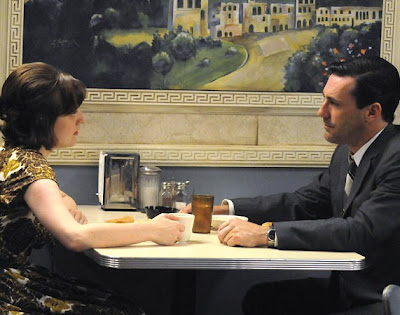 |
| Peggy and Don share grief, and coffee |
In Rosengate‘s aftermath, the conversation on working mothers is more fraught than ever. “’Working mother’ is a redundant phrase” is the neo-conservative right’s new mantra, and I won’t begrudge them the satisfaction of believing it. But let’s not pretend that the stay-at-home-mom is the equal of the working mother. It’s an affront to parents of all backgrounds: those with the luxury to choose an at-home parent over a second income and those whose finances dictate the decision. Mad Men‘s place on the cusp of this working mother’s revolution is telling, yet quietly disheartening for its glaring proof that we’ve entered a regressive era for reproductive rights.
———-
Diana Fakhouri holds a BA in English Literature from The College of William and Mary. Baltimore born and Virginia bred, she now lives in Richmond and has never turned down a Mimosa. Say hey on Twitter and Tumblr!
With a Complex Black Female Protagonist Created by a Black Female Showrunner, I’m Rooting for ‘Scandal’
 |
| Kerry Washington as Olivia Pope in Scandal |
I love Grey’s Anatomy. Is it melodramatic? Absolutely. But its dramatic storylines, sharp dialogue and diverse cast have hooked me from the very first episode. So when I discovered writer, producer, showrunner Shonda Rhimes created Scandal, a political thriller TV series revolving around a woman of color, I knew I had to watch.
‘The Walking Dead’ and Gender: Why I’m Skeptical the Addition of Badass Michonne Will Change the TV Series’ Sexism
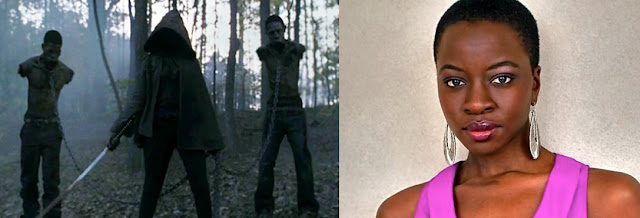 |
| (L): The Walking Dead screenshot of Michonne; (R): Danai Gurira, actor who will portray Michonne |
 |
| Andrea (Laurie Holden), Amy (Emma Bell), Carol (Melissa McBride) doing laundry on The Walking Dead |
In “Tell It To the Frogs,” Andrea, Amy, Carol, Jacqui wash laundry in a lake. As the women work, they see the men splashing around enjoying themselves. Jacqui, one of the only women with any common sense and a spark of strength, asks:
The women proceed to bond over missing their washing machines and vibrators. But then the frivolity is cut short by Carol’s abusive husband Ed who threatens the women and then slaps Carol. While the women try to defend her, Shane steps in and starts beating the shit out of him, getting out all his aggression and frustration about Lori spurning him. So even though Shane warns Ed that he better not ever lay a hand on Carol or Sophia, he’s not acting out of nobility or the belief that men shouldn’t abuse women. Not surprising as this is the same douchebag who later tries to rape Lori and then brushes it off when she confronts him about it.
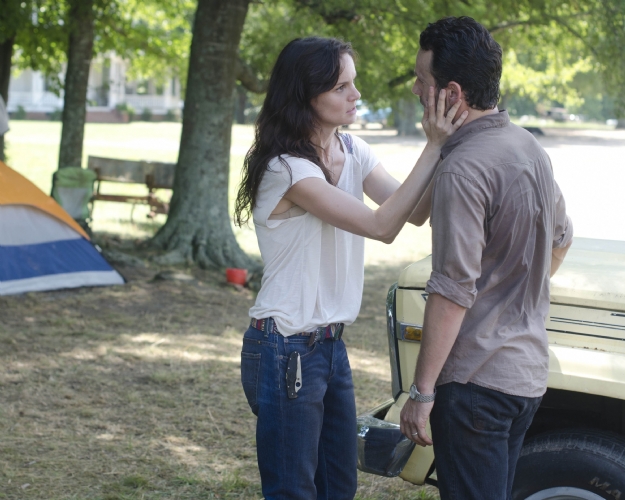 |
| Lori (Sarah Wayne Callies) and Rick (Andrew Lincoln) on The Walking Dead |
 |
| (L-R): Glenn, Andrea, Shane, T-Dog, Daryl on The Walking Dead |
Lena Dunham’s HBO Series ‘Girls’ Preview: Why I Can’t Wait to Watch
 |
| (L-R): Jemima Kirke, Lena Dunham, Alison Williams in HBO’s ‘Girls’ |
“I’ve been dating someone who treats my heart like it’s monkey meat.”
“I think I may be the voice of my generation. Or at least, a voice of a generation.”
“This is why you have no friends from pre-school.”
“I have a lot of friends from pre-school. I’m just not speaking to them right now.”“You could not pay me enough to be 24 again.”
“Well, they’re not paying me at all.”
“I felt like there wasn’t a pop culture mirror reflecting girl my age experiencing the trials and tribulations of being female at this specific time.”
“These characters are a really funny mix of sort of highly educated and very naïve…Every woman I know is such a bundle of contradictions. It was so important to me that there could be a girl who was confident but sex made her incredibly anxious, or a girl who respected herself but was using sex to push boundaries to understand herself better.”
“I really like all the new network “girl” shows. But someone once described the attitude of women on network TV as “Check it out, guys: ladies be talkin’!” And I think we were really careful about anything that rung false…“The stuff that I’m naturally drawn to writing is stuff I’ve felt but haven’t seen. I’d seen “Gossip Girl,” which was an aspirational high school story. And “Sex and the City,” which I grew up on and completely respect, was about women who had figured out the career, figured out their friendships and were really trying to lock the love thing down. To me there’s this time of life where you don’t even know what you want, and you don’t know how to want it. It’s much more abstract and wandering.”
Guest Writer Wednesday: Ann Perkins and Me: It’s Complicated
 |
| Leslie Knope and Ann Perkins |
When Ann was introduced in the pilot episode of the NBC sitcom as a disgruntled citizen at a public forum being hosted by Leslie Knope of the Parks and Rec Department of Pawnee, Indiana, she seemed to be one of the many cranks with whom Leslie tends to deal on a regular basis. Some of the funniest recurring characters on this show are the kooky folks who keep turning up to these forums, most notably the sprinkler-tea-making, poop-eating-dog-having woman who constantly blames her alarming lack of basic health knowledge on local government; and the “except for Turnip! Except for Turnip!” chanting guy who is a favourite in our household. But no, Ann had a legitimate complaint about a pit into which her boyfriend had recently fallen, a pit whose betterment would form the main goal of the show’s first (and worst) season.
The fact that Ann and Leslie got off to an antagonistic beginning makes it even more wonderful that they were able to become best friends, brilliantly subverting the cat fight trope that most other sitcoms would have gone with. Throughout the series Ann and Leslie have butted heads, but always remained respectful of each other, and their relationship is one of the best examples of female friendship in pop culture today. It is real, and it is lovely, and it is one of the two main purposes I believe the character of Ann serves on the show.
 |
| Leslie Knope and Ann Perkins |
Until the arrival of the state auditors in season three, Ann perfectly fulfilled the role of ORP. However, gradually Ben began to usurp that role, with his Jim Halpert-esque glances into the camera, and his total confusion over the appeal of Li’l Sebastian (“he just whinnied!”). Even though he worked at City Hall, Ben was more of an outsider than Ann – he’s not from Pawnee, after all. This easily set up Ann’s transition to actually working at City Hall, which makes it easier to explain why she is always there, but takes away a vital aspect of her character’s purpose.
I still believe Ann should be on the show because, like I said, her relationship with Leslie is pretty much the best thing on TV right now. But I find it somewhat ironic that a character who is part of such a feminist depiction of female relationships – that manages to be both aspirational and realistic – is so utterly two-dimensional that it seems she is only on the show to fill that role. Part of this could be due to Rashida Jones’ questionable acting talent (you have to admit she is the weak link in an otherwise phenomenal cast), but mostly I believe it is a rare lazy tendency on the part of the writers. Now that she is no longer the ORP, what is the point of Ann? Why can’t they seem to flesh her out a little?
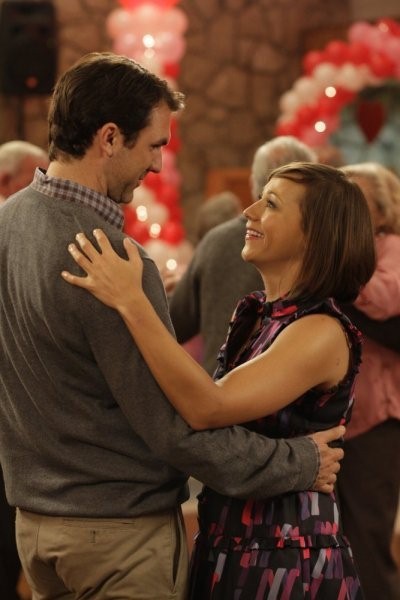 |
| Mark and Ann |
The flipside of the boredom is the cringing. Andy and Ann were terrible together, a fact which the show (and pretty much every character in it) has at least had the decency to acknowledge. The whole concept of Ann being attracted to Andy because she needs someone to take care of is so played out, and it was great to see the writers just stick that whole mess on a shelf and get Andy and April together, because they are a) a way better match, and b) adorable.
And then there’s Ann and Tom. Holy crap, is this a bad idea or what? It’s all the cringe-worthy grossness of Ann and Andy, all the boredom of Mark and Ann, and about the same amount of chemistry as Ann and Chris. Minus a million. First of all, Ann has never shown anything but contemptuous tolerance (is that a thing?) for Tom since the beginning. His maturity level alone is enough to tell her that he’s not worth her time. Earlier in the series, any time Tom hit on Ann it was so clearly a joke, I don’t think any fan of the show would ever be cheering for these two to get together. What possible madness seized the writers’ room and made them think this was a good idea?
 |
| Tom and Ann |
Ann: Hey we aren’t compatible at all and I kinda don’t even like you. Your constant objectification of me and lack of respect for my basic humanity tend to somehow make both of us less appealing.
Ann: Apparently nothing. Let’s ride this out.
I mean, seriously. Many people seem ready to give this otherwise terrific show the benefit of the doubt, but I’ve already had enough of waiting for Ann’s storylines to appeal to me. And the line at the end of the record studio episode where Ann agrees to go out with Tom, saying that he “wore [her] down,” would have made me quit on a less consistently feminist show. That shit is not cool.
In my (obviously super correct and valuable) opinion, Ann needs to be a lot more three-dimensional before her storylines are all taken up with relationship plots, much like in life how relationships always work out better when you’re cool with yourself first. As a viewer, I would like to care as deeply about Ann as I do about Leslie (and let me tell you something, that is pretty deeply) before I will care about how she fares in a relationship with some dude.
On the flip side of that, I need Tom’s ridiculous antics to be something we are supposed to laugh at; not something that is validated by relationships with women who are way too good for him. And we all know that Ann is probably way too good for Tom; we just need the story to show us that. Otherwise what message are we supposed to take from what used to be the most progressive show on TV?
———-
Peggy Cooke is a Canadian feminist who works as a non-profit staffer by day and a reproductive justice rabble rouser by… later that same day. Her resume has been described as “fascinating.” She writes about abortion at Anti-Choice is Anti-Awesome and Abortion Gang, and she reviews fiction set in Toronto at Smoke City Stories.
Top 10 of 2011: Leslie Knope
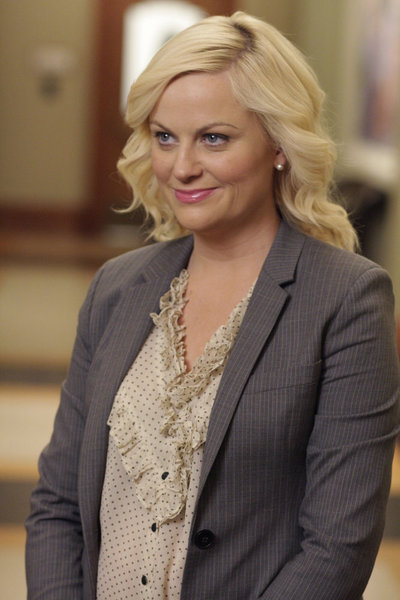 |
| Amy Poehler as Leslie Knope |
See also: #10 in 2011, #9 in 2011, #8 in 2011, #7 in 2011, #6 in 2011, and #5 in 2011.
Top 10 of 2011: Boardwalk Empire
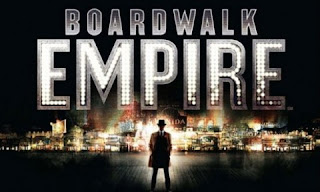 |
| HBO’s Boardwalk Empire |
Afro-Colombian Female Leaders Defy Death Threats to Hold Onto Their Land in ‘Women, War & Peace’s ‘The War We Are Living’
Imagine you walk into your home. An eviction notice awaits you. The government demands you relocate in order to dig up your land. If you choose not to leave, you receive death threats. This is the reality many Colombian civilians face. While a notorious drug war has been waged, another war ravages the South American country’s land and its people. I had never known about this struggle.
In The War We Are Living, Part 4 of Women, War and Peace (WWP), Colombian women grapple with displacement as their country is torn apart. Co-written by Oriana Zill de Granados and Pamela Hogan, WWP co-founder and executive producer, the chilling yet inspiring documentary is narrated by actor Alfre Woodard. Fueled by greed and a gold rush, guerillas and paramilitaries destroy homes and ravage bio-diverse lands. The government remains silent, failing to protect its citizens. Amidst this chaos, two female community leaders and activists, Clemencia Carabali and Francia Marquez Minas, admirably fight to hold onto their homes and save their land.
Beginning as a class struggle between the rich and poor, civil war erupted in Colombia. 40 years ago, armed guerillas fought for the poor, seizing land and attacking the government. Wealthy landowners created private militias, or paramilitaries, to protect them. Both the guerillas and paramilitaries funded their war through cocaine trafficking. “By the 90s, the guerillas and paramilitaries had turned Colombia into the most violent country in the Americas. Civilians were caught in the crossfire.”
“In my zone there is a network of African women…When the paramilitaries take control of the territory, men are killed, accused of being guerillas so women develop a key role because they’re able to move around.”
Activist and community leader Francia Marquez Minas, also works closely with ASOM. She lives in La Toma, a mountain community of Afro-Colombians in Cauca who rely on mining to survive. But investors want to open large-scale industrial operations to extract the gold from La Toma, destroying the residents’ subsistence.
Marquez serves as Vice-President of La Toma’s community council, spearheading the fight to protect their land. Raising two sons, Marquez works in the mines part-time to put herself through college, not only to educate herself but to empower her community:
“So I told myself I have to study law because that gives you the tools to teach your community how to demand their rights.”
“Colombia is one of the countries with the best laws to protect Afro-Colombians. Nevertheless those rights exist only on paper.”
Over the course of the last two decades, at least 16 million acres of land have been violently taken from Colombians. In the last 8 years, over 2 million have been displaced. Colombia has the second largest number of internally displaced people in the world after Sudan. With no jobs and contaminated water, displacement traumatizes civilians and rips families apart. Under international law, internally displaced citizens don’t receive the same protections that refugees do. Their government is supposed to address their rights. But in this case, how are Colombians supposed to obtain justice when their own government condemns them?
Afro-Colombians make up one quarter of Colombia’s population. In May 2010, coinciding with Afro-Colombian Day, which commemorates the end of slavery in Colombia, Sarria’s eviction was set to commence. People took to the streets, barricading the road to halt the eviction. Marquez said:
“The 21st is when we celebrate Afro-Colombianism in this country. The gift the government was giving us was a threat of eviction for our community. The message that is being relayed is that in this country the black communities don’t matter.”
“You cannot ignore us just because the government thinks more about the riches that can be extracted from this country, than it thinks about the lives of the people in this country…The community of La Toma will have to be dragged out dead. Otherwise we are not going to leave!”
“I get chills hearing all the positive things that are said about President Uribe. And I get chills because people don’t know all the damage he did especially to indigenous communities and black communities.”
The U.S. has given over $7 billion of assistance to Colombia. In order to continue receiving aid, Colombia must meet certain requirements, including military protection of the Afro-Colombian population. If human rights violations occur, foreign aid is supposed to stop. But the U.S. continues to provide funding, despite Colombia’s numerous human rights atrocities.
In September 2010, for the first time ever, the State Department, in its human rights report to Congress, highlighted La Toma’s land dispute in order to monitor the situation. It’s a step but the battle is far from over. Talking about the war she faces, Marquez said:
“The never-ending conflict in this community helps us remember what is important in life. My grandparents always say a soul without land is navigating without destination…I start thinking – and I believe the whole world needs to start thinking – what do we want for the future? Because if we continue this way, humanity will come to an end. “
Most documentaries tell stories in the past. But events in The War We Are Living continue to unfold. The story isn’t over. Sadly, the La Toma case isn’t isolated. Other communities face eviction and death threats from paramilitaries. While President Santos recently signed a bill into law that would “return 5 million acres to landless peasants,” he believes paramilitaries don’t pose a real threat. But Carabali and Marquez still fear for their lives.
Echoing concerns of Occupy Wall Street protests about the elite 1% controlling resources, Colombia contends with massive class inequality and a war fueled by greed. Afro-Colombians and Indigenous Colombians confront discrimination and concentric layers of oppression including racism and classism. Facing death threats to themselves and their families, female leaders like Clemencia and Francia bravely negotiate for peace and demand justice. They refuse to be intimidated. They refuse to leave their land. They refuse to be silenced.
Watch the full episode of The War We Are Living online or on PBS.
Megan contributed reviews of The Girl with the Dragon Tattoo, The Girl Who Played with Fire, The Girl Who Kicked the Hornet’s Nest, Something Borrowed, !Women Art Revolution, Who’s Afraid of Virginia Woolf?, The Kids Are All Right (for our 2011 Best Picture Nominee Review Series), The Reader (for our 2009 Best Picture Nominee Review Series), Man Men (for our Mad Men Week), Game of Thrones and The Killing (for our Emmy Week 2011), Alien/Aliens (for our Women in Horror Week 2011), and I Came to Testify, Pray the Devil Back to Hell and Peace Unveiled in the Women, War & Peace series. She was the first writer featured as a Monthly Guest Contributor.
